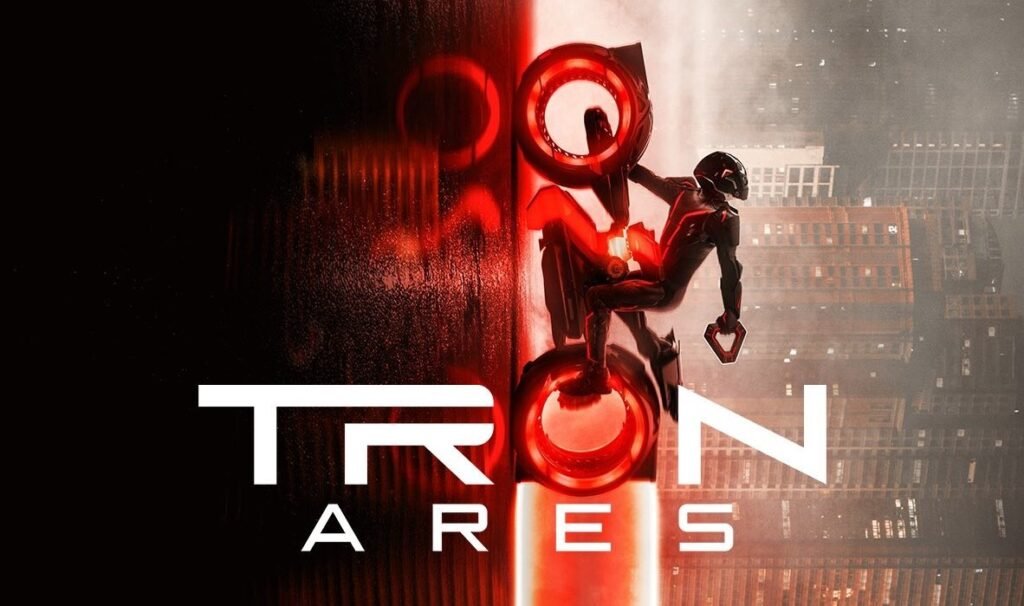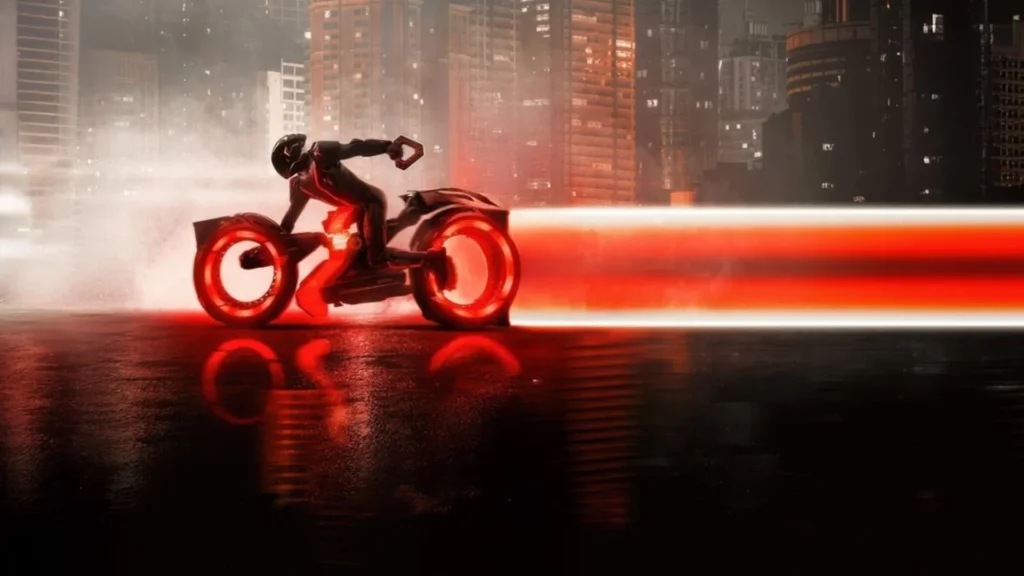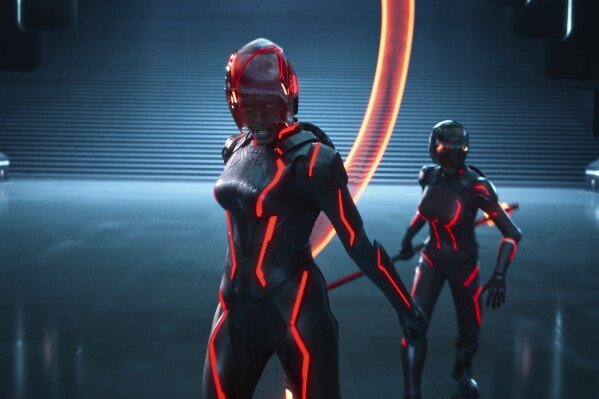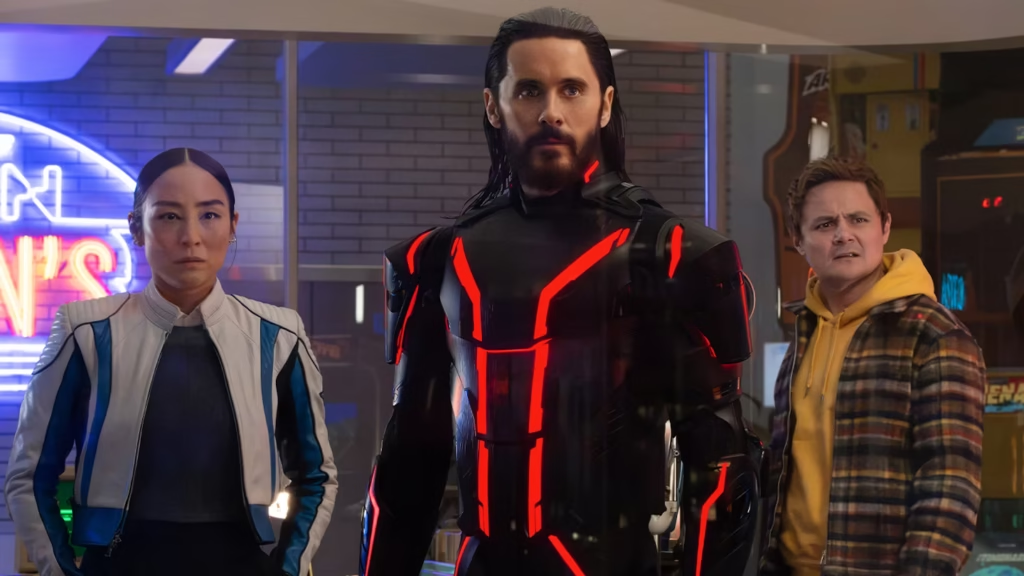
Reviews
Tron: Ares
Despite its lack of major box office success, the Tron franchise has rightfully earned its place as one of the most beloved and iconic sci-fi series of all time. Both the original Tron and its sequel Tron: Legacy are held in high regard by fans, often considered cult classics. That’s what makes Tron: Ares all the more baffling and frustrating, ultimately feeling soulless in comparison.
The latest iteration is helmed by director Joachim Rønning, a Disney franchise veteran known for his work on the sequels to Pirates of the Caribbean and Maleficent. It’s perhaps fitting that Rønning has now completed an unwanted hat-trick of mediocre-at-best sequels, with Tron: Ares rounding out the trio.
The plot, on the surface, is intriguing. Taking place years after Tron: Legacy, Tron: Ares pits two tech powerhouses, ENCOM and Dillinger Systems, against each other. ENCOM, originally founded in the 1980s by Kevin Flynn (Jeff Bridges), is portrayed as the good guys, now led by CEO Eve Kim (Greta Lee). Their rivals, Dillinger Systems, are depicted as an evil AI corporation led by Julian Dillinger (Evan Peters), who seeks to create indestructible soldiers and tanks by bringing programs from the Grid into the real world. The only problem is that these creations remain stable for just 29 minutes before disintegrating.

Eve Kim has secretly discovered a way to keep programs in the real world indefinitely, known as the “permanence code,” and keeps it on none other than a flash drive to ensure the crucial technology’s safety. Dillinger quickly uncovers her secret and sends his digital army after her, led by Ares (Jared Leto), a humanoid uber-warrior, and his second-in-command, Athena (Jodie Turner-Smith).
But rather than taking a standard good versus evil dynamic and turning it into something compelling, Tron: Ares opts for the most painfully generic route possible. There’s nothing new or particularly interesting that the film has to say, instead, it’s excruciatingly predictable from start to finish. As expected and teased in the trailers, Ares begins to question what is happening and develops “feelings.” A storyline that either succeeds or fails entirely on whether the audience cares about a machine discovering emotions, and because it is so utterly lifeless, it’s hard to imagine anyone does.

Following the rules established in previous Tron movies, creations like Ares and Athena should be modeled after their programmers and possess passion. In Tron: Ares, that couldn’t be further from the truth. Both Leto and Turner-Smith, as Ares and Athena, deliver their lines with zero intensity and agonizingly robotic, completely at odds with what their characters should be. The blame could certainly lie with the writers, but I’d like to think they hadn’t entirely ignored what came before, which leads me to conclude that these were simply phoned-in performances, something that, for Leto at least, wouldn’t exactly be a first. I’d actually rank his performance here alongside his turn in Morbius, equally enthralling for all the wrong reasons, which should be more than enough to temper expectations.
Talking about the performances, much like the movie itself, there’s nothing particularly memorable to write home about. Greta Lee and Evan Peters are talented actors, there’s no doubt about that, but their performances here will likely go down as some of the most forgettable, despite both having considerable screen time. I do feel sorry for Jeff Bridges, though, who is thrown in for what feels like an entirely needless cameo, seemingly just to get some bums in seats.

It would be unfair to say Tron: Ares doesn’t have any redeeming qualities. Without question, the film’s strongest element is its phenomenal score. Composed by Nine Inch Nails, it’s easily one of the best film scores of the year. The previous entries in the Tron franchise had already set an incredibly high bar with their groundbreaking soundtracks, but Nine Inch Nails have somehow managed to surpass even those efforts. To put it into perspective, the score is so powerful that director Joachim Rønning admitted to shaping entire sequences of the film around it. That alone makes it worth the price of admission and cements it as the most memorable aspect of the entire movie.
Visually, Tron: Ares is also superb. While the effects themselves aren’t necessarily groundbreaking, the way the real world and the digital aesthetic of Tron are blended together is flawless. I lost count of how many times my jaw hit the floor during the insane and undeniably cool action sequences in 3D. This is one of those films that truly needs to be experienced on the biggest screen possible to fully appreciate its stunning visuals and effects. That’s probably the highest compliment I can give the movie.
But even with those positives, the bland, recycled, and quite frankly boring storyline makes Tron: Ares easily the weakest of the trilogy. It’s not often that a movie can leave you feeling absolutely nothing about its story or give you no one to root for, yet that is exactly what Tron: Ares has achieved. If this is the road Disney has chosen to go down, my only hope is that someone from the Grid can stop them before it’s too late.
